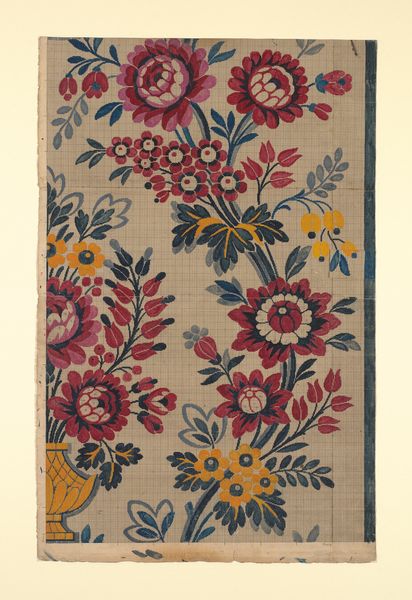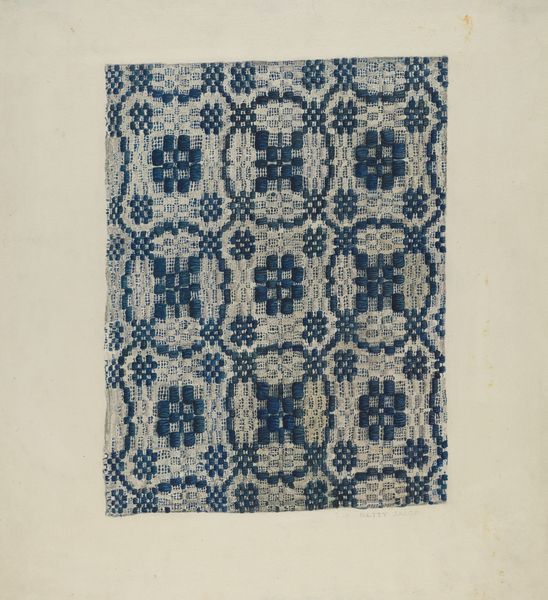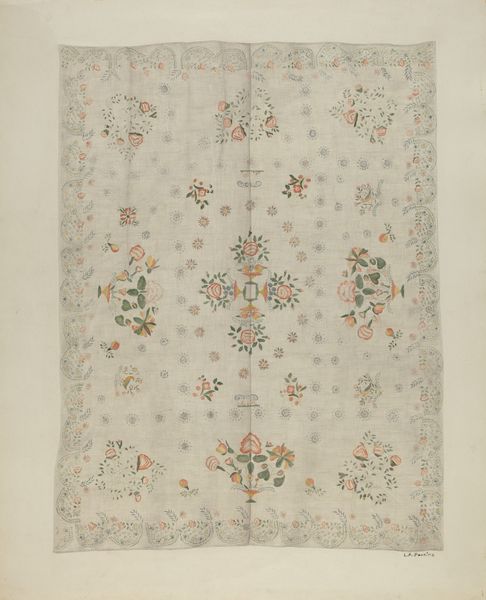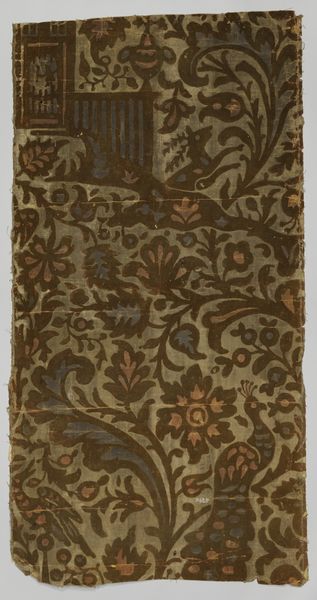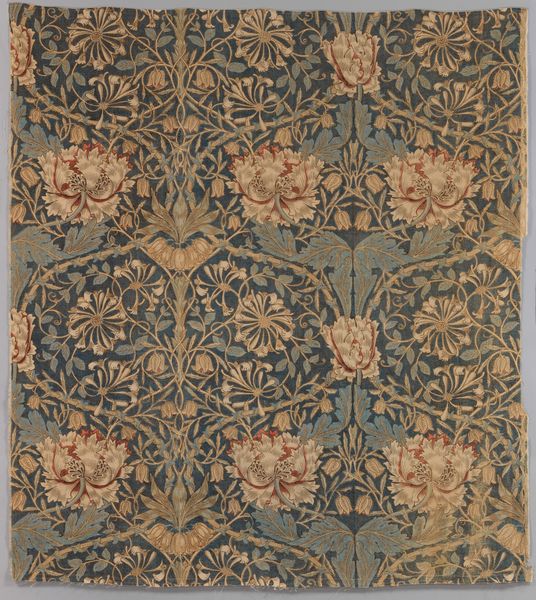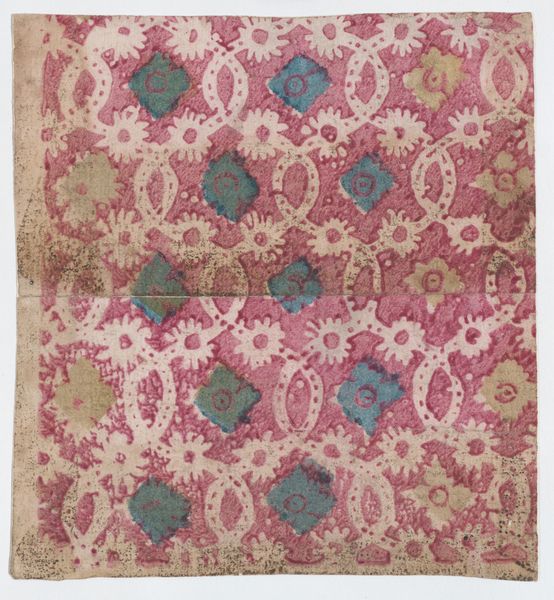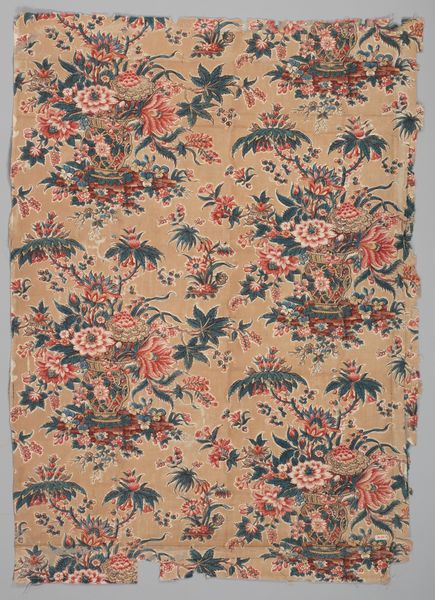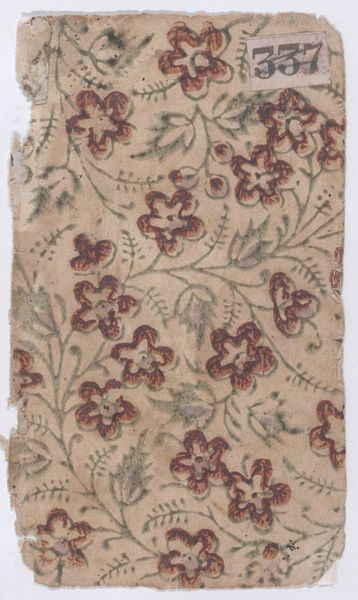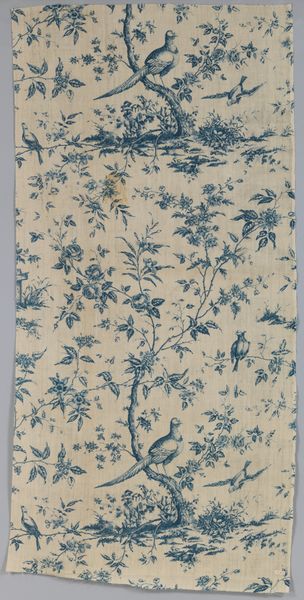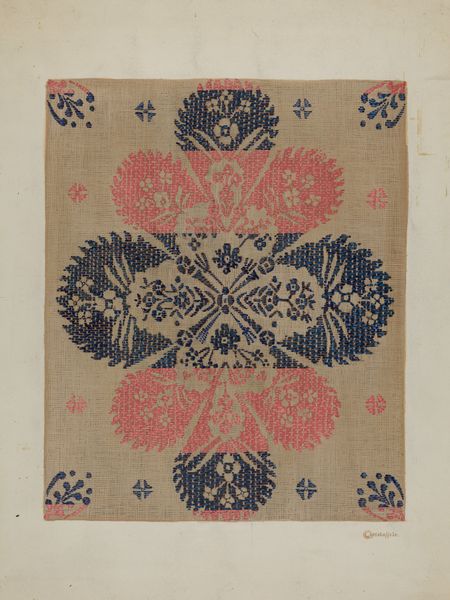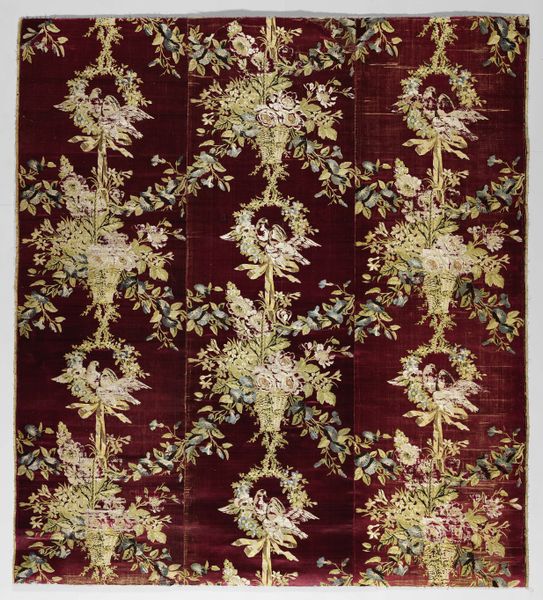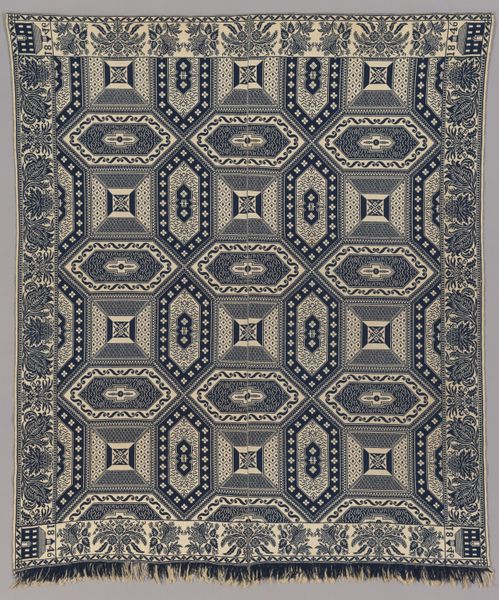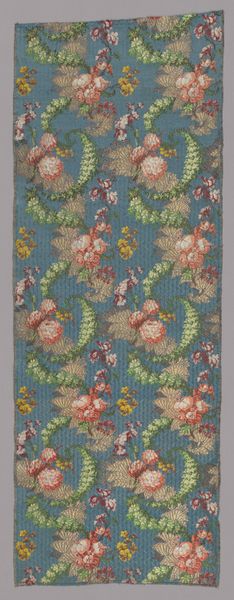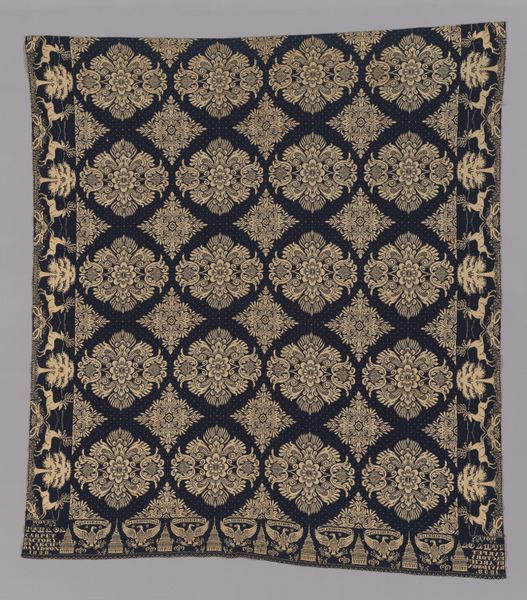
textile
#
textile
#
organic pattern
Dimensions: overall: 45.8 x 36 cm (18 1/16 x 14 3/16 in.) Original IAD Object: 68" long; 14" wide
Copyright: National Gallery of Art: CC0 1.0
This Resist Fabric, by Milton Bevier, is a fascinating example of textile art where material and process are key. The fabric's deep blue ground, punctuated by delicate floral patterns, results from a labor-intensive resist dyeing technique. Imagine the artisan carefully applying a resist paste – perhaps wax or mud – to the cloth, blocking the dye from penetrating those areas. The fabric would then be immersed in an indigo dye bath. This process might be repeated multiple times to achieve the desired depth of color. The paste is then removed to reveal the intricate, undyed pattern beneath. What's so compelling about this process is how it marries artistry with utility. Resist dyeing has a long history in many cultures. It speaks to a time when textiles were not merely commodities but also carriers of cultural meaning and markers of identity. Looking at the fabric, you get a sense of the human effort involved, a connection to the maker that transcends the purely aesthetic. It challenges our notions of what constitutes art, inviting us to appreciate the skill and knowledge embedded in everyday objects.
Comments
No comments
Be the first to comment and join the conversation on the ultimate creative platform.
